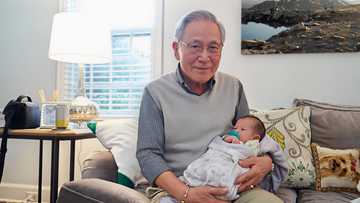Doctors Said I’d Never Walk Again — Ten Years Later, I Walked Back Into Their Hospital
The hospital doors slid open, releasing a cold, clinical smell, a mix of disinfectant and the stale air of endless waiting. I felt every eye on me as I stood in the main hallway. This wasn't a casual visit. This was my moment of crisis and defiance, years in the making.
Narito na ang paghahanap sa KAMI! Basahin ang mga balita tungkol sa iyong paboritong mga bituin sa pamamagitan lamang ng pag-type ng kanilang pangalan sa search bar!

Source: Getty Images
My knuckles were white where I gripped the chrome handles of the walker. The metal was cold, unforgiving. My breath hitched in my throat, a dry, rattling sound that was magnified by the silent hallway. Every head turned.
Every eye was on the slow, agonising drama of my forward movement. They weren't looking with pity, but with that deep, clinical curiosity reserved for medical anomalies.
This was it. The moment I'd replayed a thousand times in the solitary darkness of my rented bedspace. The moment of truth. "Just a few more steps, Grace," Dr Mateo, my physical therapist, whispered from directly behind me. His voice was low, soothing, the familiar anchor in my perpetual storm.

Source: Getty Images
PAY ATTENTION: Follow us on Instagram - get the most important news directly in your favourite app!
I could feel his hands hovering inches from my waist, ready to catch me, to save me from the inevitable crash I felt building in my unstable legs. But I shook my head, a slight, stubborn movement. "No. Not today."
The next few seconds stretched into a lifetime. I stared down at the polished tile floor, a dizzying checkerboard of white and grey tiles. I saw my feet, my own feet, swollen and strangely alien, and the heavy, orthopaedic shoes that felt like bricks. They were planted squarely on the ground, but they felt miles away from my brain, disconnected, unresponsive.
I closed my eyes. And then I did something utterly reckless. I let go.
The walker clattered forward, hitting the ground with a shocking, metallic bang. A gasp went up from the small audience of therapists and nurses.

Source: Getty Images
My body immediately pitched to the right, gravity claiming its due. For a terrifying, heart-stopping fraction of a second, I was airborne, a falling star with nowhere to land.
This is it, I thought. This is how I shatter the dream.
But a miracle didn't happen. Something more powerful did.
Muscle memory, etched over ten brutal years, took over. My right hip twitched, my left knee locked, and my torso straightened just enough. I didn't fall. I staggered. I caught myself. I stood there, swaying violently, completely unsupported, for one, two, three endless seconds.
The pain in my back was a roaring inferno, the agony a siren that screamed through my brain.

Source: Getty Images
But above the pain, there was a new sound: the absolute silence of the people watching. And then, one slow, deliberate breath later, I took one excruciatingly small, independent step, the most difficult, most monumental step of my entire life.
Ten years before that shaky, triumphant moment, my life had been split in two. There was the "Before," a blur of easy movement, spontaneous provincial trips, and a career in photojournalism that kept me constantly on my feet. I never appreciated the sheer, effortless magic of being able to stand up.
Then came the "After." A single catastrophic moment. A rain-slicked road, a distracted driver, and a crunch of metal that rearranged the structure of my spine and my future.
I woke up to a harsh truth delivered with sterile precision: "We've stabilised the injury, but the damage is severe. You will likely never walk unaided again, Grace. We're talking about a significant, permanent reduction in mobility."
Never.

Source: Getty Images
The word hung in the air, heavy and absolute, like a final, unappealable verdict.
The first two years were a blur of gruelling, monotonous physical therapy. It was less about regaining movement and more about preventing atrophy.
I spent hours staring at the ceiling of the rehabilitation centre gym, pushing against resistance bands that offered pathetic resistance, trying to move a toe that would not respond to the signal from my brain. It was a cruel, silent war fought inside my own body.
The stakes were impossibly high, yet seemingly insignificant to anyone else. They weren't about running a marathon or climbing a mountain. They were about being able to pour a glass of water without fear of toppling over.
They were about reaching the top shelf for a forgotten book. They were about standing in front of the CR mirror without the steel arms of a frame holding me upright.
I lost a lot during those years. The job went first; the travel was impossible.

Source: Getty Images
My fiancé, bless his heart, tried. He really did. But the man who fell in love with a spontaneous, adventurous spirit couldn't navigate the daily reality of caring for one who was broken. The guilt was suffocating for both of us. He left, gently, apologetically, and I understood.
I traded a life of motion for a life defined by four walls, a wheelchair, and a relentless, aching need for assistance. My identity had been built on my independence, and now that cornerstone was gone. My limitation defined my life, and the only goal I had left was to disprove the doctors' final, definitive word: Never.
I was fighting for more than mobility; I was fighting for my own survival.
The sheer, grinding monotony of the recovery process became the actual adversary. It wasn't the accident that broke me; it was the decade of tiny, almost imperceptible failures.

Source: Getty Images
My world shrank to the size of my condo unit and the sterile confines of the rehabilitation centre.
Friends tried to visit, but my increasing bitterness made it difficult.
One evening, a former colleague called, ecstatic about a promotion and a new overseas assignment. "You should come visit!" she gushed. "It's gorgeous here. You'd get some amazing shots."
I felt the resentment coil like a viper in my stomach.
"That sounds great," I said, my voice flat. "But as you know, my travel schedule is a bit restricted these days."
A heavy silence followed. "Right. Of course, Grace. I just… I forget sometimes."
I forget sometimes.
That single phrase, spoken without malice, was a punch to the gut. It was a reminder that for everyone else, my condition was an inconvenience, an occasional sad thought. For me, it was everything.
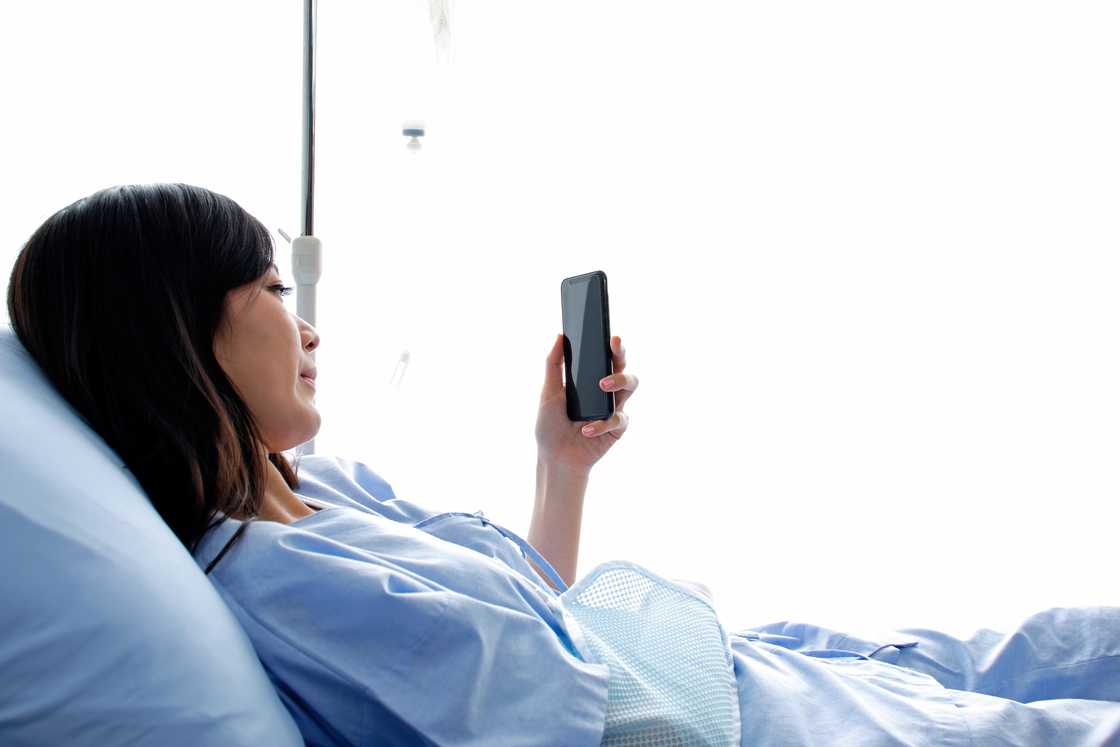
Source: Getty Images
The phone calls became less frequent, the visits stopped, and I withdrew into a shell of self-pity and anger.
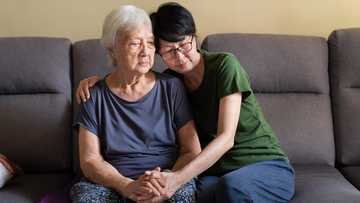
Read also
My Grandma Fell and Lay Alone for Two Days — Until Her Neighbours Found Her and Saved Her Life
The financial burden was crushing. The medical bills piled up like unsorted laundry. I tried remote work, but the constant physical pain made concentration difficult. I was burning through my savings to pay for specialist consultations and adaptive equipment. Every cent spent felt like an investment in a failing business.
I remember staring at my bank statement one desperate night, a statement that showed another massive charge for a custom leg brace. I started to cry, not from pain, but from sheer exhaustion. Was this all worth it? If the outcome was still a life tethered to a chair, why was I bankrupting myself and my family for a few degrees of painful movement?

Source: Getty Images
"It's about quality of life, Grace," Dr Mateo would patiently explain. "Even a five per cent improvement in core strength can make a huge difference in how much you rely on others."
But I didn't want five per cent. I wanted one hundred per cent, the 'Before' me. I wanted my old life back, and anything less felt like a cruel joke.
The most damaging conflict was the one fought in my own head. Doubt wasn't a visitor; it was a permanent resident.
"You're not trying hard enough," a voice would whisper when I failed to complete a rep.
"The doctors were right. You're wasting your time," another voice would hiss when I saw another patient, a younger one, progress faster than I did.
I started missing appointments, first one, then two. I'd sit at home, staring out the window, disabled not by my injury, but by a suffocating sense of futility. The effort felt too great, the reward too distant.

Source: Getty Images
One morning, Dr Mateo showed up at my door. He didn't lecture. He just looked me in the eye, his expression one of calm disappointment.
"You've been coming here for almost a decade, Grace. You know the drill. What is the one thing I told you on day one?"
I swallowed, the words tasting like ash. "Consistency is more important than intensity."
"And what are you being right now?"
"A quitter," I whispered.
He shook his head. "No. You're being human. But the human spirit breaks when it loses its focus. You're looking at the finish line a thousand miles away. Today, I don't care about walking. I care about you making it through that door and just sitting in the gym. Can you do that for me?"

Source: Getty Images
That was the lowest point. A world-class therapist had just reduced my decade-long fight to the simple act of showing up. But it was also the turning point.
I dragged myself to the centre. I hadn't given up, but I was teetering on the edge.
For ten years, I had been diligently practising the same motion countless times a day: standing up from a chair, supported by parallel bars, then a walker, and finally crutches. Every single time, the movement was calculated, painful, and assisted. My legs were trained, but they weren't mine.
It was a Tuesday, late afternoon. The gym was quiet, bathed in the orange glow of the setting sun filtering through the high windows. I was tired, irritable, and ready to call it a day.

Source: Getty Images
I was practising standing transfers, a seemingly simple move. Stand, pivot, sit. Repeat. Dr Mateo had stepped away to answer a quick call.

Read also
She Walked Out of Handover in Tears — He Called Her Back, Fixed the Remark, and Drew a Plan
I had just successfully stood, holding onto the parallel bars, and was about to lower myself down. But my arms were fatigued. I was annoyed. My focus was elsewhere, on the grocery list, on the pile of bills, on the crushing weight of never.
And then, I made a mistake. A tiny, miraculous mistake.
Instead of grabbing the chair's armrest as I pivoted to sit, my hand slipped.
My centre of gravity shifted immediately. The usual panic flared, the fear of falling and doing irreparable damage. I tensed, preparing for the sickening lurch.
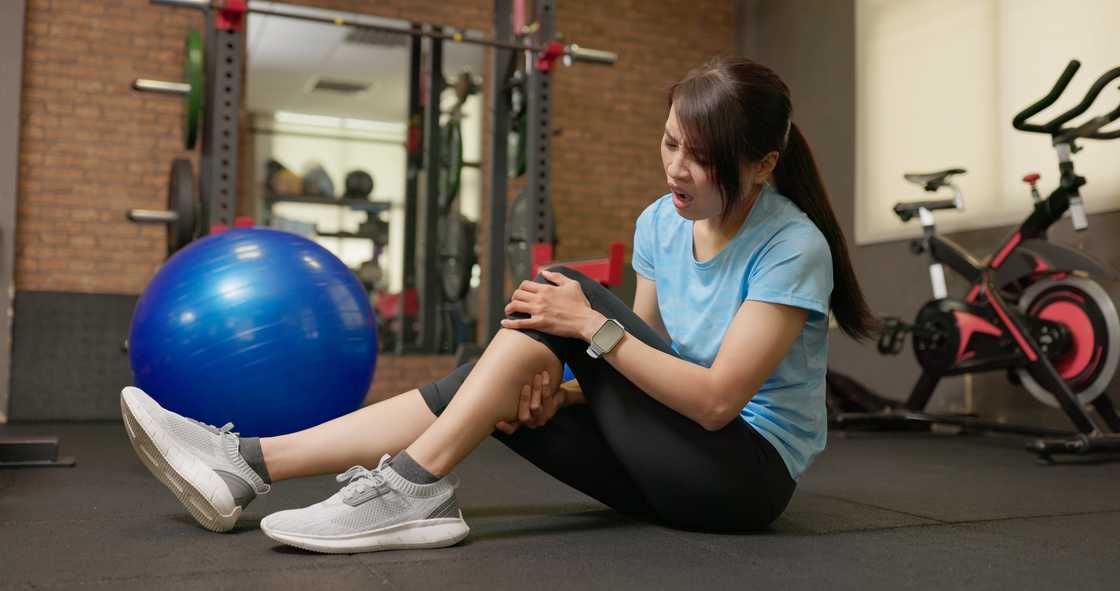
Source: Getty Images
But as I pitched forward, my brain, in a desperate, split-second survival mode, sent a signal I hadn't received in a decade.
It wasn't the slow, agonising, conscious command of "move leg, fire quad." It was an instantaneous, primal instinct to save yourself.
My left foot shifted, a microscopic, unthinking adjustment. My core muscles, weak but present, tightened.
And for the first time in ten years, I wasn't pushing myself up; I was holding myself up.
It lasted perhaps two seconds. Two seconds where my hands were hovering above the armrests, not pressing down on them. I was standing, completely unassisted, in the middle of the empty gym.

Read also
She Meets Him at the Bagels — He Installs Spyware; She Finds a Studio and Reclaims Her Life
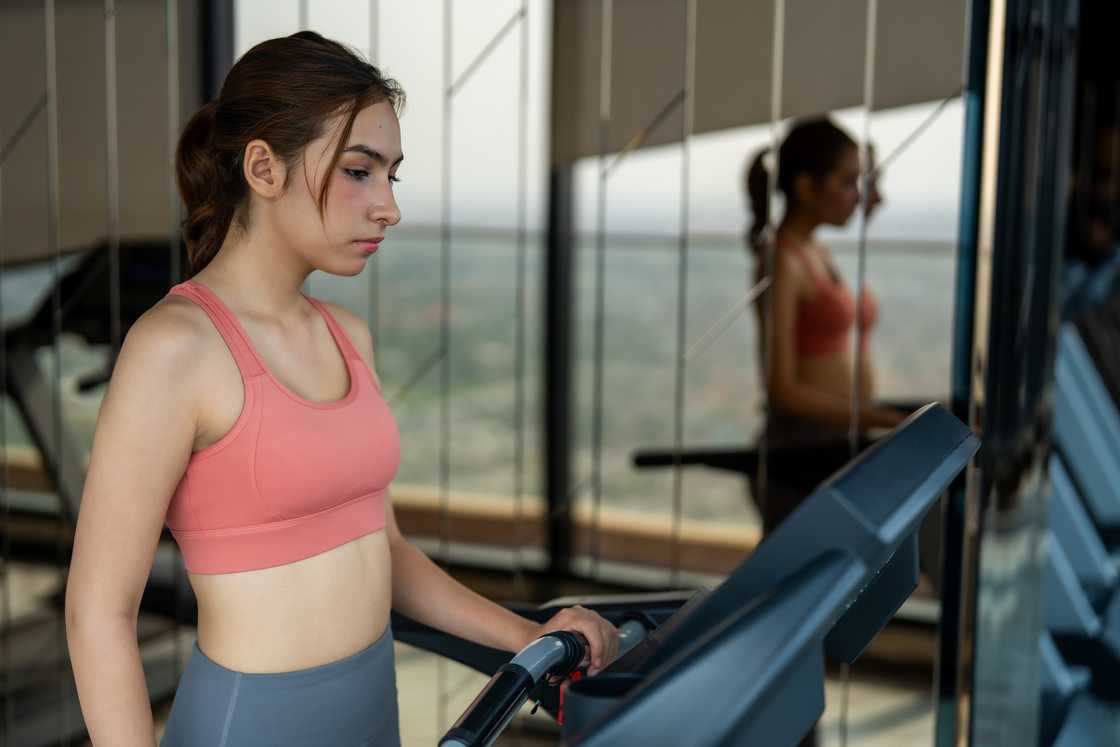
Source: Getty Images
Dr Mateo walked back in, phone still at his ear, and froze. He didn't speak into the phone; he stared. I didn't try to move; I just felt the moment. It was a complete flip of my entire reality. I hadn't taken a single step, but I had managed to balance.
I hadn't proven the doctors wrong, but I had shattered the absolute nature of their verdict. The world hadn't magically fixed itself, but the sense of possibility, the internal yes, that had been extinguished ten years ago had just flared back to life.
It was a small breakthrough, but its impact was tectonic.
It proved that the connection wasn't severed, only blocked. It meant the effort hadn't been a waste. It meant that my body hadn't forgotten; it had simply been waiting for the right moment, the right impulse.
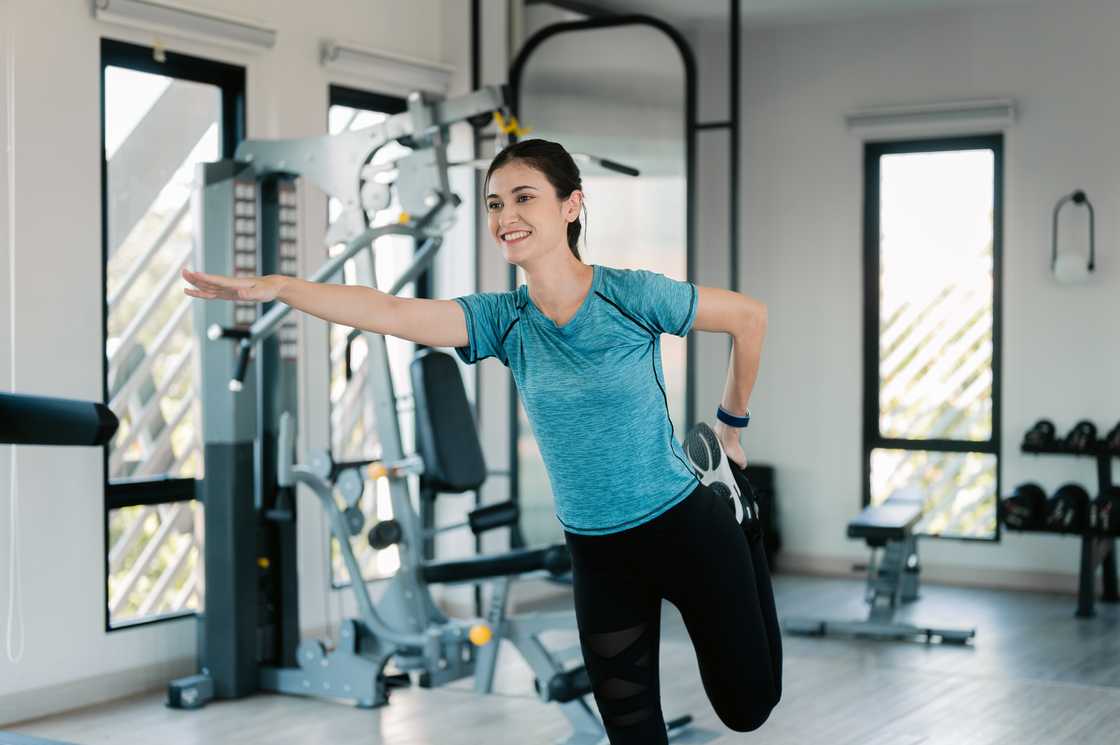
Source: Getty Images
I took a shaky, deep breath. I sat back down, trembling, not from effort, but from the sudden, stunning realisation: I wasn't done fighting. I was only beginning to learn how to win.
The shift in perspective was immediate and profound.
I stopped focusing on the impossible: running, dancing, hiking. I focused only on what that two-second balance had shown me: my body was capable of autonomous movement.
The next few years were still a brutal, relentless grind, but the voice of doubt was quieter, replaced by the memory of those two seconds of perfect, unassisted stillness.
I worked on my balance with a terrifying new urgency.

Source: Getty Images
Two seconds became five. Five became ten. The crutches came, and slowly, the walker was relegated to the corner.
The actual resolution came three years later, in the same hospital where my journey began.
I walked, literally, independently, with only the slight, almost imperceptible hitch in my gait as a souvenir, into the Physical Therapy wing of the Sentral na Sentro ng Rehabilitasyon.
I didn't need a wheelchair. I didn't need an appointment. I walked in, my steps slow and deliberate, but utterly my own.
I asked the receptionist for Dr Mateo. She was new and looked sceptical, but she buzzed him anyway.
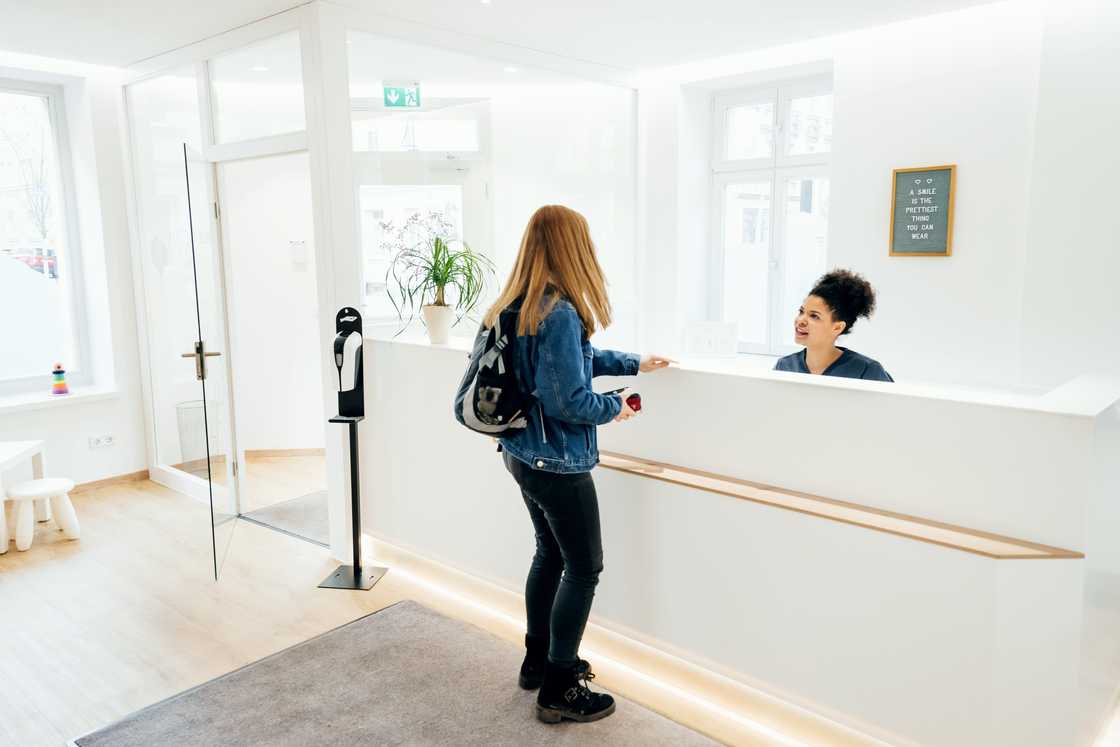
Source: Getty Images
He walked out and stopped dead in the doorway, a clipboard in his hand. He looked at my legs, then my face, then back at my legs, the recognition slow and emotional. His eyes, usually so clinical and composed, were glistening.
"Grace," he choked out, dropping the clipboard.
The silence stretched, filled only by the sounds of the gym behind him.
I smiled, a genuine, unburdened smile that finally reached my eyes. "I just came to thank you," I said, my voice steady. "They said I'd never get my life back, but they were almost right. You're the reason they were only almost right."
I now volunteer as a mentor in the same physical rehabilitation centre. I don't teach exercises; I teach patience and perspective.

Source: Getty Images
I share my story with those who have just received their own "never," usually while sitting beside them. But sometimes, I stand up. I walk to the window. And I say: "I know what they told you. But your body is not a broken machine; it is a complex battlefield. And the battle is won not by one grand miracle, but by the relentless, quiet work of showing up every single day."
The most important truth I learned wasn't about the physical capacity of my body; it was about the limitations of language.
When the doctors told me I would never regain my mobility, they were using the best available evidence and statistical probability.

Source: Getty Images
They were giving me a cold medical assessment. But the word "never" didn't just describe my physical future; it became a self-fulfilling prophecy for my mental one. It defined my expectations, my efforts, and my willingness to fight. It was a mental cage far more confining than any wheelchair.
What that accidental, two-second balance taught me was that absolute pronouncements are often just estimates based on average data. My body and my will were not average.
I thought the fight was about walking. I was wrong.
The fight was about reclaiming my narrative from the people who had claimed it with a single, devastating word.
I had to stop seeing myself as a permanently disabled person trying to walk, and start seeing myself as an influential person with a severe, temporary challenge.

Read also
"Change the Will or Burn the Mansion," Uncle Says — Barrister Opens; Police and Press Step In

Source: Getty Images
The ultimate lesson is this: The most significant barrier to getting your life back is not the obstacle in front of you, but the language you use to describe yourself and the effort you're making.
If you accept a final, negative label, such as "damaged," "broken," or "never," you stop fighting. If you change that label to "healing," "challenged," or "in-progress," you open up the possibility of a breakthrough that the statistics couldn't predict.
It is a gruelling, lonely path, but you cannot let someone else's assessment of your probability become your definition of your destiny.
So, I ask everyone I mentor, and I ask myself every day: What absolute word, what limiting label, are you currently using to define your current struggle, and what small, silent action are you taking today to prove that label wrong quietly?
This story is inspired by the real experiences of our readers. We believe that every story carries a lesson that can bring light to others. To protect everyone's privacy, our editors may change names, locations, and certain details while keeping the heart of the story true. Images are for illustration only. If you'd like to share your own experience, please contact us via email.
Bagong feature: Tingnan ang mga balitang para sa'yo ➡️ hanapin ang "Recommended for you" block at mag-enjoy!
Source: YEN.com.gh





